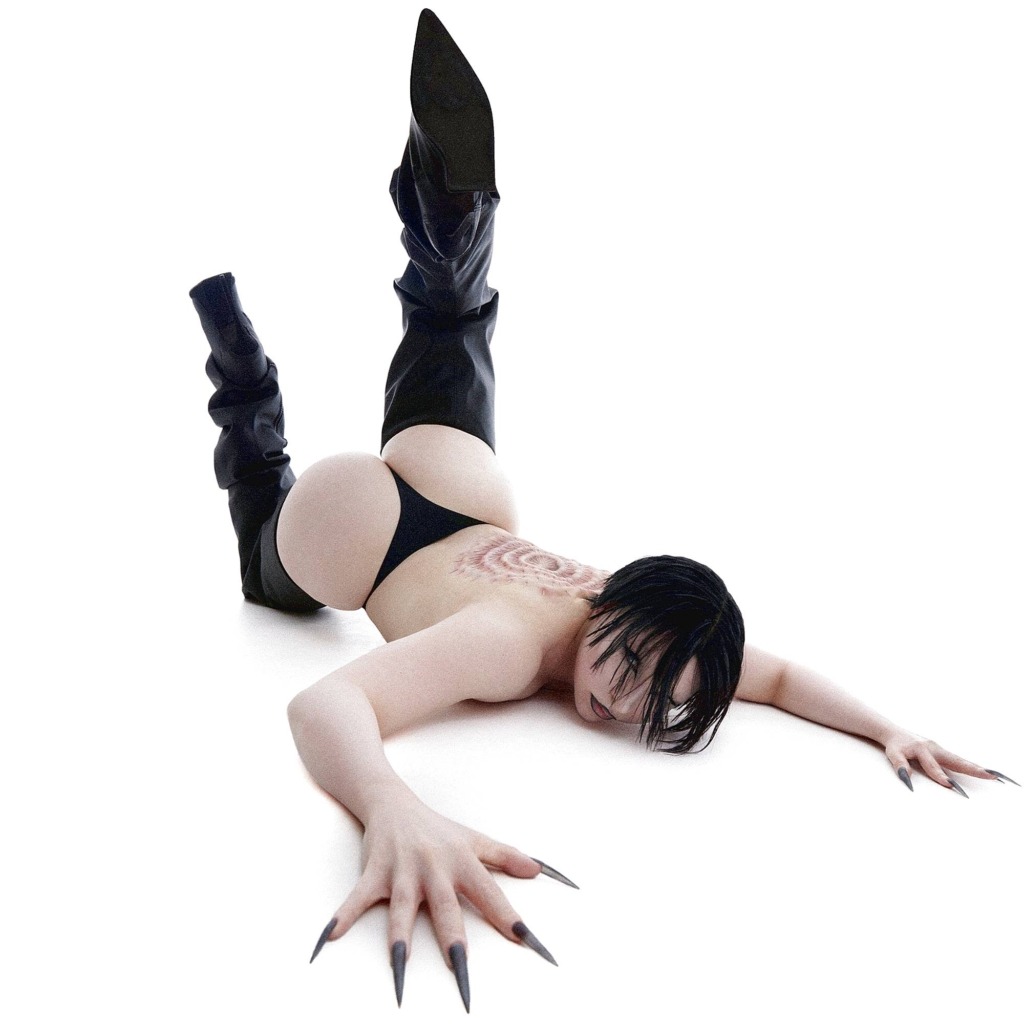Behind the scenes of the infectious hit "Brand New Bitch", Cobrah takes us through it all
Tena Razumović ŽmaraJune 24, 2024
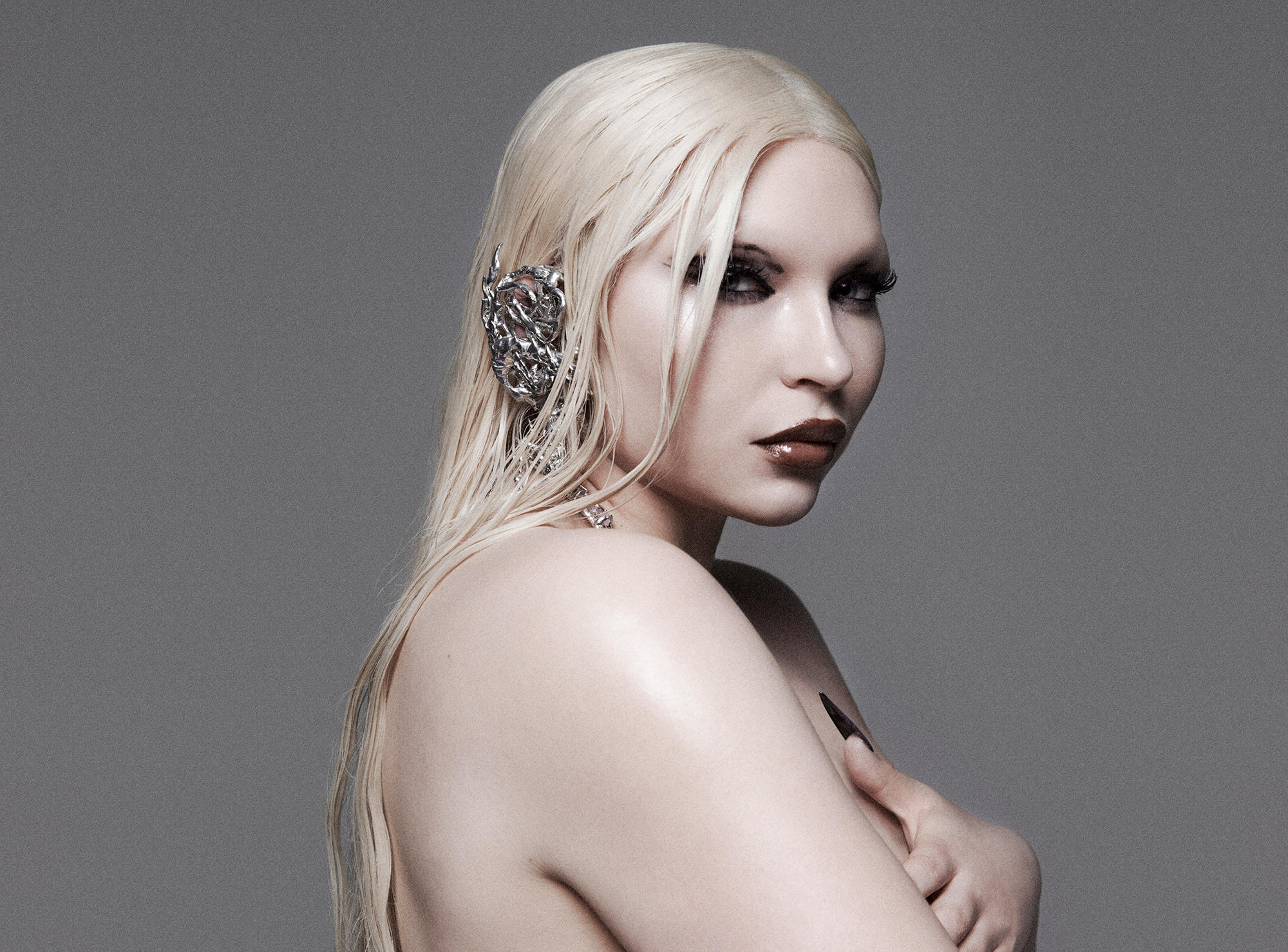
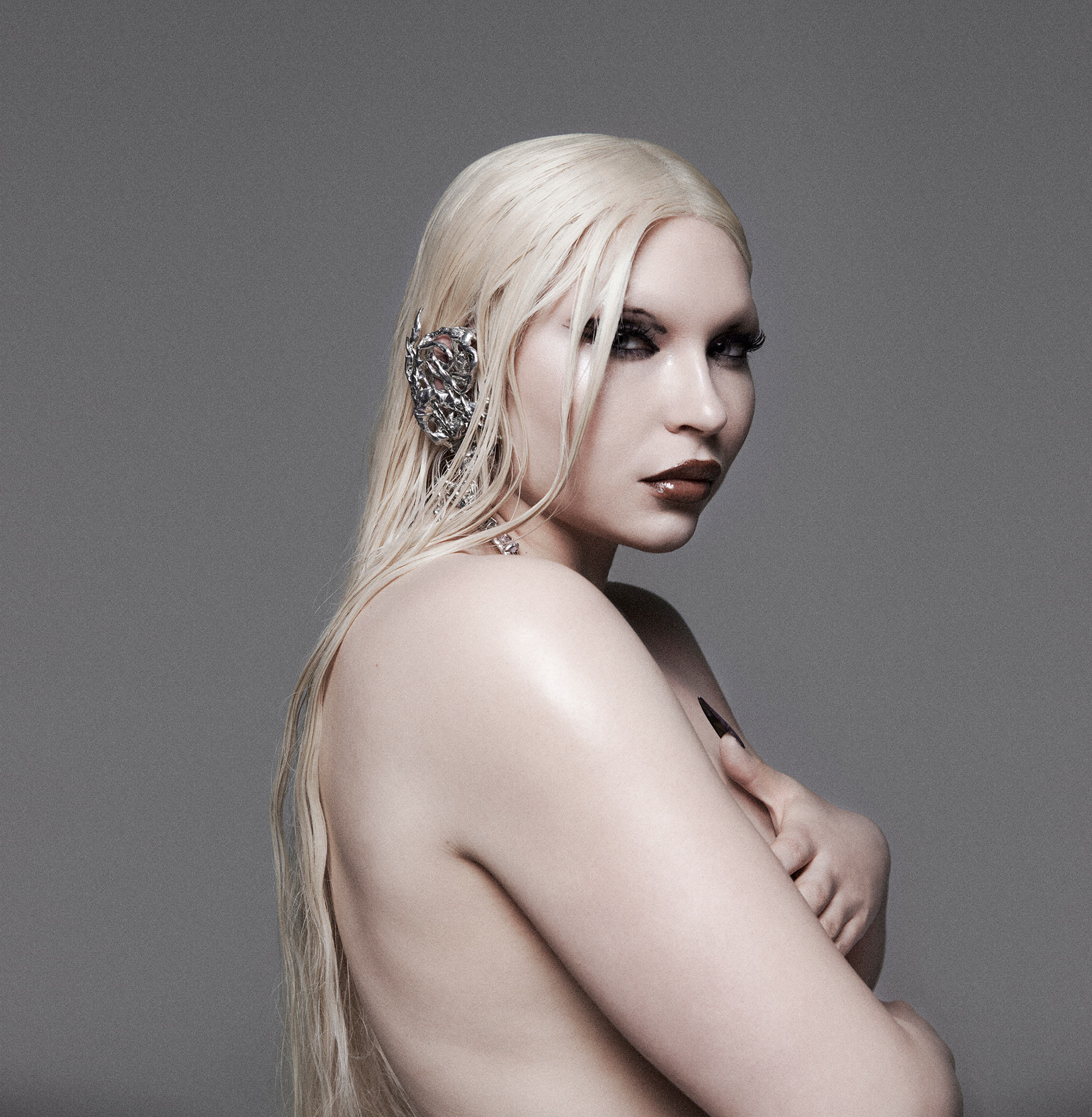
June 24, 2024
The song Brand New Bitch has been around since 2022, and now, with video clips from the movie Kinds of Kindness, it has become an earworm for everyone; it’s catchy. I vividly remember the moment when I clicked on the trailer, the teaser where Emma Stone dances to the song, which immediately made me move in my seat and start grooving. However, the moment of absolute infatuation happened when I heard the following lines:
Do my nails, cut my hair, I’m a brand new bitch
Got my face in Mugler and my new look sick
On a place we can share, put you on the A-list
Do my nails, cut my hair, I’m a brand new bitch
That was it. Over. Forget the movie, who performs this song?! Actually, no! Don’t forget the movie! I’ll watch the movie precisely because of the song. Okay, also because of Yorgos Lanthimos, Emma Stone, Jesse Plemons, Willem Dafoe, Margaret Qualley, Hong Chau, Joe Alwyn, Mamoudou Athie, and Hunter Schafer. Because of all of them, as this song hints at something different, quirky, and immensely attractive in their roles, the story of the film, and the whole artistic package. The song has, at least in terms of my curiosity about this movie, become the icing on the cake.
Cobrah is the magical name behind the song. And many other infectious songs. Surely by now, if nothing else, then precisely because of that trailer, you have listened to her work. And I had a wonderful opportunity to interview this exceptionally interesting artist.
Your music has a unique sound and energy. How would you describe your musical style, and what are your primary inspirations?
I think my sound is really fun and happy, but it also has this kind of dominance to it. For me, it’s really important to make music that isn’t cute, like it’s supposed to be strong and fun at the same time. So, I’m very inspired by using sounds that sounds like textures, like when you hit something, like when you hit a pen.
I like the sounds of rubber and chains and stuff like that. So, I think that’s music-wise and instrument-wise. We never use chords. We only use bass lines and sounds that have this kind of texture feeling.
OK, that’s about the sound. But musically, I’ve read somewhere that you were very much influenced with Kate Bush, if I’m correct. How can you describe the way she influenced your work? Is there a common connection to your inspiration from the sounds, from the texture and music such as hers?
I don’t think sonically. She has inspired me very much. But when I was about 10 years old, I got this mp3 from my parents and my dad had downloaded all the music he liked. And one of her albums was on the mp3 that I got for my birthday. And I was really influenced by her as a person and as a songwriter because she had this fantasy around the music that was just otherworldly. And her music told stories.
And especially, I think, the way the music sounded was very unconventional to me when I grew up. And I think I’ve always admired artists that had that type of approach to music, being often like female solo musicians I really like, and this like avant-garde way of approaching music. And although I make electronic music, and it sounds completely different, I think when you’re an artist, it’s important to come into the music industry with an artistic, new, exciting point of view.
And artists like Kate Bush really inspired me to find that within myself, if that makes sense.
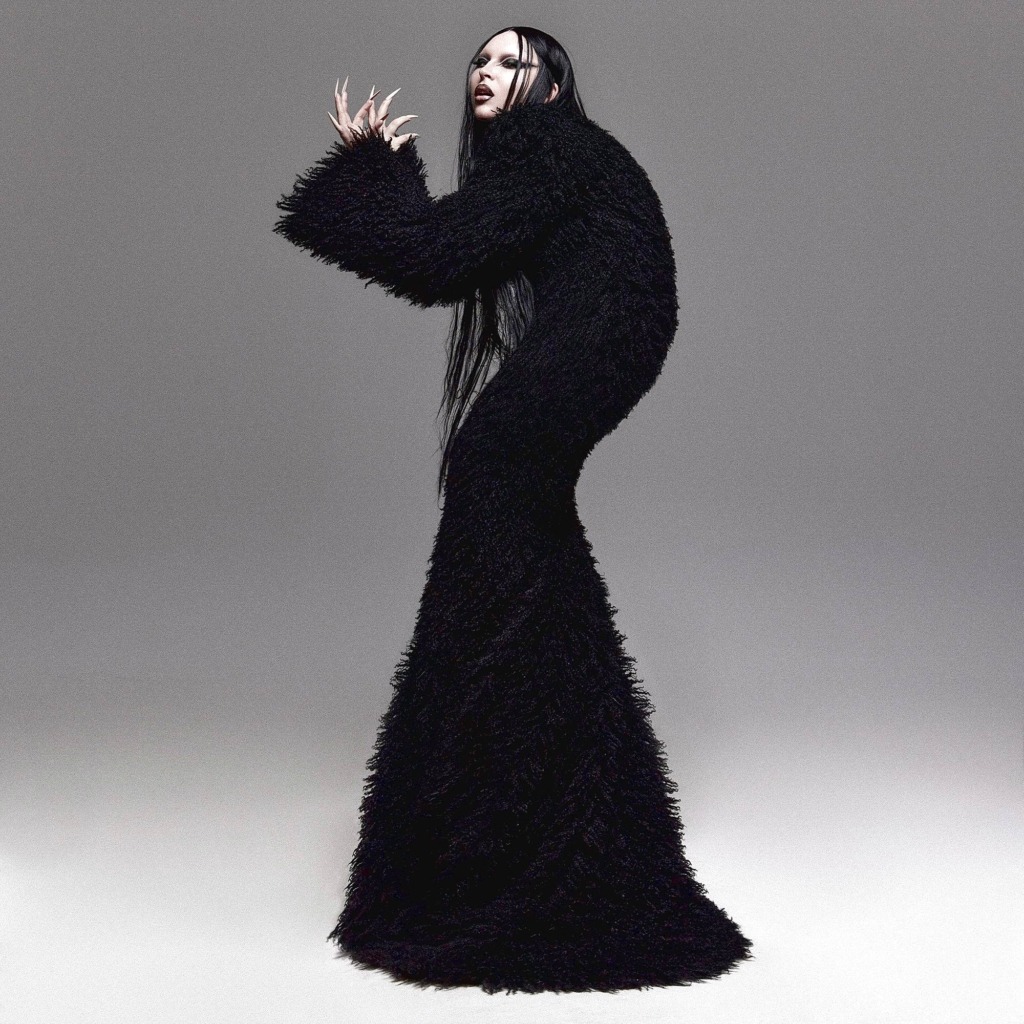
It makes sense totally. But also, not only that I read it somewhere, but I can like sense it in your music. My first analogy to your image and music was a Finnish symphonic metal band Nightwish because of blending genres, experimental sounds and shattering the norms of what it means to be a music icon. Reding about you and about your music and listening to it, even though it should be like pop electronic music, but the way you distort it, the way you switch it around, it really resonated to me like you also under the influence of metal music. So how do you approach to this, let’s say, genre fusion of so much influences? And what is the most interesting part in generating your sound and your aesthetics from all of that behind it?
That is a very good question. I think it is really hard nowadays to find what is your sound or what is my sound.
I feel like it took a very long time for me to do music. And after you’ve done a certain amount of songs, you can see, ah, this is the thing that keeps on happening in every song I make. And that becomes the defining sound that you have.
And often it’s unintentional. Like it grows on you or something like that. And, you know, every time, let’s say you play an instrument or you’re a singer, every time you go to the piano, you usually do the same chord every time. You have this go-to vocabulary, you could say, basically. And the same if you’re a singer or a rapper or a producer, you go and you like the same melodies, you do the same melodies again and again and again.
And that’s where you have your sound. And I think you can’t really get rid of that. And you can’t train to get it.
It just has to be this thing that you do that comes from you. And that is your artistry. And so it is hard to find that when there’s so many influences.
And I think I try now to not be too influenced by the things going on around me. And that’s why I tend to be more interested in sounds and textures and stuff instead of being interested in melodies and what’s going on in music right now. Because it’s easy to want to sound similar or want to do what somebody else is doing.
And that is really, really dangerous when you make music, because if something is already happening, then that person is doing that. It’s not for you. You have to do what comes from within.
So when I make the visuals and the music, I always listen to things that come from nature or the world around us that isn’t pop culture.
When you talk like that about creating sounds, it kind of has a nostalgic feel for me. Because let’s say 20 or 25 years ago, when I used to go to a lot of jazz festivals, if they had a freestyle jam, that is the way they used to make music. They are not going to drum with sticks. They’re going to use chains, spoons, drop things on the floor, pick it up, rattle with it, and they will create sounds in that manner. So it’s like an origin story, like going back to the roots of making sounds.
Yeah. And I think when we made music originally, it was supposed to imitate things that we heard from nature before. Putting your music aside, let’s say, when I’m done listening to it, it has some kind of, let’s say, a plastic and metallic feel to it.
And when I look at your covers, at you, your fashion, you also have that kind of aesthetics. And I think I read on the cover or something like that, that you curated Succubus yourself, the visuals. And my question is; how important it is for you to translate your sound to your visual aesthetics and back?
I think especially in the beginning, and it still is, it was equally important as the music. I felt like when I was trying to discover my sound, I was also trying to discover what I wanted Cobrah to look like. I was trying to find my aesthetic as well as the aesthetic of the sound.
And I was at this photographer’s apartment here in Stockholm, and she was a really big fetish enthusiast. And I was interested, but I wasn’t crazy about it. But she had this apartmen with a whole room that was just dedicated for latex. In her kitchen, she had a stripper pole. In her living room, she had a swing.
She was really invested in the culture. And so I got to try on these things. I got to try on the latex and the corsets and the gloves and everything.
And when I was doing that, I was like, shit, this is so fun! I’ve never had this much fun in my entire life with clothing. And I asked her, and I was like, where can I indulge in this? Where is this scene? What music do you play? I had no idea because I don’t come from a background where that is common. I hadn’t been in touch with that before. And she said, there’s this fetish club. They have it once a month.
And I emailed the fetish club, and I was like – Hey, my name’s Cobrah. I make music. It’s not out yet. I just make demos, but I really want to come, and I really want to play my music at your club because I think you’re going to like it. And they said – Sure, yeah, come play your music. And then when we got there to the club, it was just fantastic!
I thought it was freaking great because everybody was dressed up, and everybody was in latex. And then that’s kind of where I started to like those textures, the chains. And I was performing, and you say there’s this thing where you should imagine your audience naked, but they were naked. It’s so strange. There was this girl. She was completely naked, and I was the most dressed there.
I think that was kind of the birthing place of the music and the aesthetic. They’re equally important, and they were kind of birthed together as well. They’re like the two legs I stand on. You can’t do just one of them.
Regarding that thought, if you should give character to Succubus, what kind of demon should it be? Because usually when people think of a word demon or see the aesthetics of a demon, it’s negative. But when I listen to your music, it’s very positive. Very positive. It’s powerful.
Yeah! You know what we did? We made the demons playing cards. Each song has its own demon, and each demon has its playing card with its backstory and name and its strength, fashion obsession. It has its own fashion obsession and weakness. It was birthed in the mountains. I have a whole document with how they look in the story. Each Succubus has its own backstory and history.
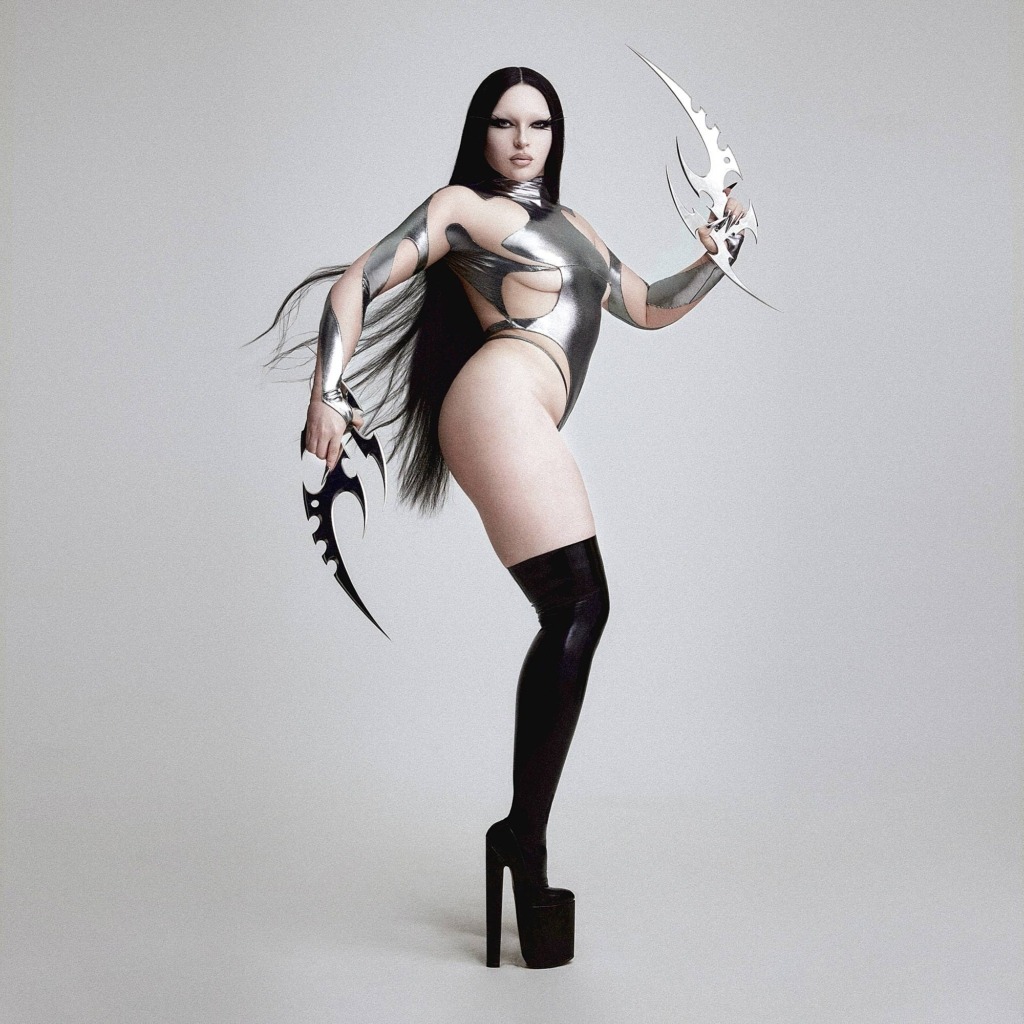
But now you mentioned playing cards. You often use powerful visuals actually in your music and your performances. How do you develop those visuals and those concepts? Are you trying to dwell into arts or to combine those kind of two artistic expressions? Do you have a specific, let’s say, studio you work with, or do you conceive everything yourself? Or do you have a team that derives from it or something like that?
Usually, when I write the music, I get ideas of how I want it to look like at the same time. Normally, that helps me write the music because if I come up with a story or a room, say we’re in a garage or we’re in a swimming pool, it’s going to be easier for me to make the sounds because then I know what a swimming pool sounds, for example. So it kind of goes together.
And sometimes, usually what happens is that I go for a walk and something pops. I get, oh, this would be cool. And it’s really hard to come up with stuff when you’re sitting by your computer and be like – now I’m going to come up with a really cool idea.
So I try not to do that. I just try to trust that it’s going to come. And then I have people to help me make that come true, for example.
And usually, I work with a creative director that kind of, because, you know, I do so many different stuff, I have people that help me to make that come true and develop the ideas. But normally, I am the one that comes up with the original thought and then we spin around that.
You’re like a visual storyteller before creating music…
Yeah, I think so. And then I always really hated to write music.
Really?
Yeah, because I think it’s really hard to make music.
And I think it’s easy to come up with fun ideas of crazy things to do. And so I always liked working on the visuals more than I liked working on the music. But I feel like I’ve come to a place where I kind of start to like to write the music, but especially in the beginning, I thought it was really hard to make the music.
Regarding your genre fusion, your single, Brand New Bitch, I have to ask you about that because everybody’s talking it, which is connected with the movie Kinds of Kindness. The single is having a pretty wild moment right now, if I may say so. But how did you come about that song? How did you fuse all those sounds together? What did you think about? Were there several stories or ideas? Because when I listen to it, I don’t hear one song. It’s like I hear several of them combined and smooshed together into one great, upbeat song.
Thank you. Normally, I think when I make music, because it’s fun, I try to not overthink it.
I try not to be too analyzing about it. So I think I was in the studio with my producers and we were twisting sounds and then we are like… And then we did that melody and I was like, okay, I want something catchy. I want something that everybody can sing.
So I wrote the – do my nails, cut my hair… And so we were singing. I sang it and then I was like, okay, cool. We got it. This is perfect. This is the chorus.
And then I was writing the verses. And I think I did three different types of verses before we found the one that is on the record. And when we were going to sing it in the expensive microphones, because they sound better.
And normally I don’t sing in the expensive ones because you want a really shitty one that you could just grab and be like, sing whatever you like at any point in time. And then I was going to sing in the expensive microphones and it sounded shit. OK, it didn’t sound shit, but it didn’t sound as good.
Because that initial thought, that initial feeling of do my nails, cut my hair I think that’s part of the soul in the song. We kept a lot of the shitty microphone takes because it’s the original idea. It gave the character actually.
The thing I like about that song, there’s this point that they use in the trailer too, where I go – grrrrrrrr- sound in my throat. And then we made a synth out of that sound. And that was a really fun like sound engineer thing that I got into like with textures and stuff, that I really liked.
I was like, oh, I wonder if we can make the synth, but with my like raspy voice.?
And you did it!
Yeah, we did it. It was really fun. I think it’s a perfect example of like a song that is fun and stupid, but very dominant. If that makes sense.
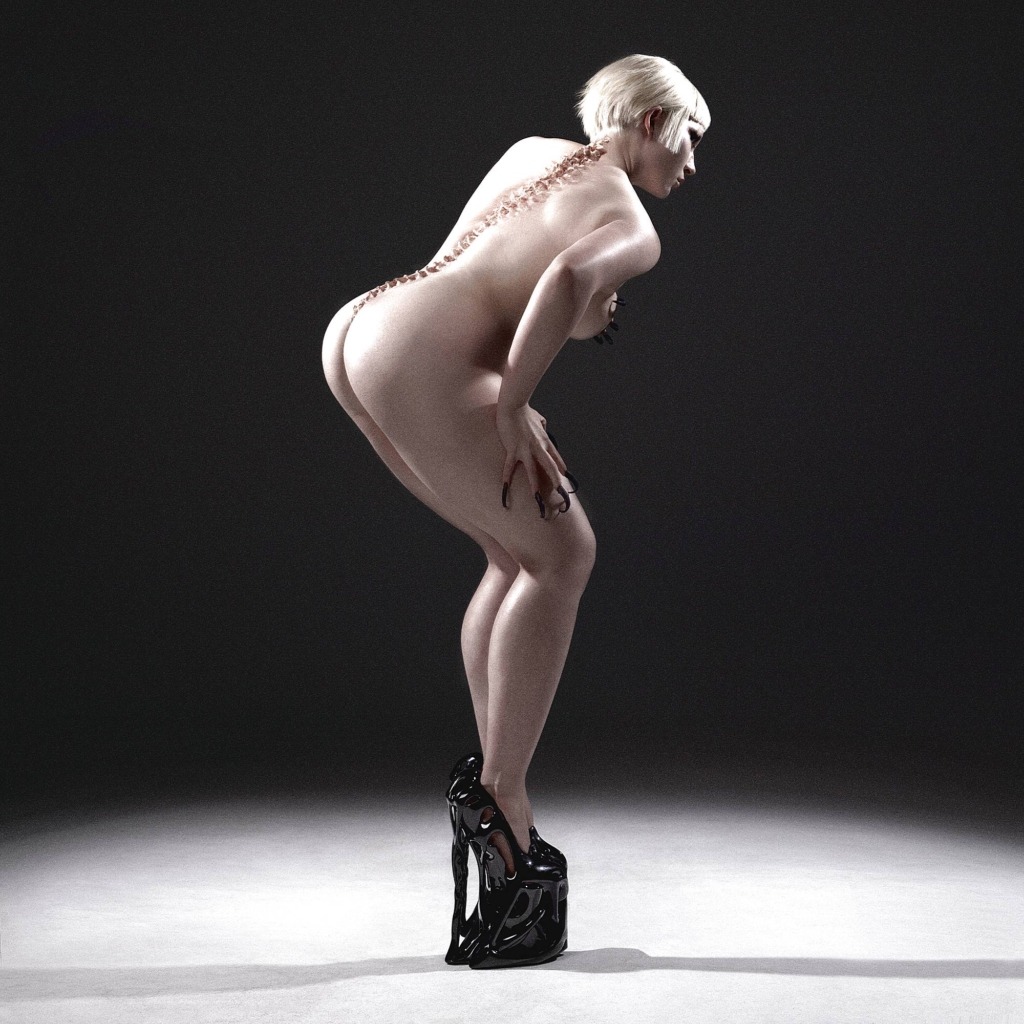
Your fashion style is also very distinctive. How important is fashion for your identity as an artist, as a musician, and how do you choose your outfits and your fashion for performances? Because I suppose it’s not clothes that you wear every day, but also I believe it’s not far from.
No, I agree. I think fashion for me has been really, especially these past few years has been really, really important for what I do. I think fashion is a luxury as well. I think that’s important to say.
When I started out, fashion was so far away from what, I was a music teacher when I was starting. And then I didn’t grow up with affording nice brands and stuff like that. And I think that’s why latex style was really important to me, having a good style.
But as I became more successful, I was more exposed to fashion as well, because it’s another world to me; indulging in that. And so now when that is more approachable for me, it’s become kind of a life changer, if that makes sense. I didn’t use to go to fashion shows. And now I am super, super inspired by what fashion does.
And I feel like fashion and pop culture, it’s like the hen and the egg quastion, you know? They come together all the time.
And so what I see on a runway, I will be wearing someday. And some things I do, I can see that they’re using, like Mugler is using my song on their runway. It kind of comes together, yeah, it all intertwines.
And so I feel really, really lucky and really, really inspired by tapping into the fashion industry.
Because the way you look, the way your performances are conducted, the way that looks, it’s all very hyper. And your music was described in several articles as hyper-pop, actually, like from some musical critics. And I was just wondering, when you had your debut, I believe in 2018 or something like that, was your music really perceived like a deconstruction part of music and music scene. Then everything is hyper, like hyper-pop. How do you feel the change between them? Is there any, actually? And where should it go further? Because if something is deconstructed and then hyper, it’s like not two opposites, but two dimensions not touching each other at all.
I think I was always, I’m a little bit twisted in the question of hyper-pop, because when I was making the music at the time, I did not know what hyper-pop was. And what happened was that I released the music and after I released, I was starting to Google myself and I was like, is anybody listening to my music? I was really interested. And then I saw this hyper-pop forum on Reddit where everybody was writing about Cobrah!
And that’s how I found out what hyper-pop was. And so being defined in that genre was partly a good thing because it has a lot of hardcore fans, but it was also, I felt a little bit pushed into something that I wasn’t intentionally wanting to be a part of, if that makes sense.
So, and so I don’t really know that much still about hyper because I didn’t really indulge in it, but I do, I know there’s still some artists that do that genre, but I feel like somewhat we are losing, and I think this comes with a little bit of TikTok itself. It feels like things are becoming more and more genre-less, if that makes sense. Yeah, it’s a fusion of everything.
And so being very dedicated to a genre is kind of slipping away a little bit because people, I think maybe because we have, all of us artists have this big ego of wanting to be unique, but also because music, how fast we consume music and how fast we get over music is so fast right now. So everything, I feel like it’s all blending. Artists are blending more genres within their albums and stuff. So I think that’s my thing.
Can you suggest some underrated artists, musicians, which you believe will be big soon? Do they exist at all?
I think there’s plenty that exist. I really like a girl called Aisha Erotica that is really big, but had all her music taken down from Spotify and is slowly coming back up again. And I think she has this soul in her music, this genuine thing, and she’s a good rapper, she’s a good producer. And now she’s making her way back. And that is really, really cool. So that’s the person I’d say for sure.
How do you see your musical development into the coming years? Will there be another new sound or would you like to explore the current one?
I think I’ve been doing my sound very thoroughly, I’ve been sticking to my sound for a very long time. The sounds and the rapping and stuff, and I feel like I am on the border of developing to something new.
And it feels really, really exciting because I’ve been doing music for a fairly long time and I feel very comfortable in doing music. Like I said, I like to write music a lot more than what I used to like. So I’m also trying new stuff a lot more because I feel more excited about it.
